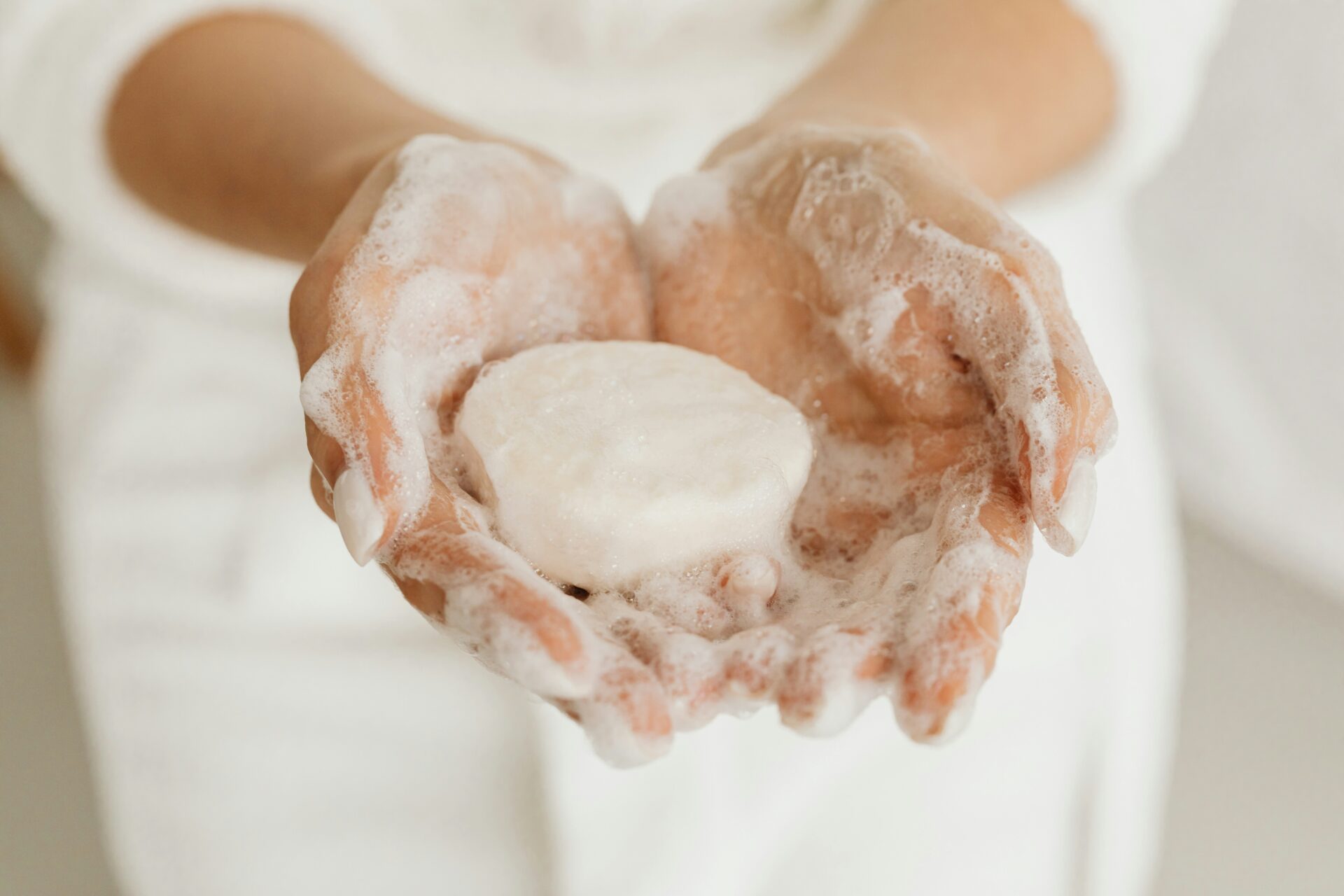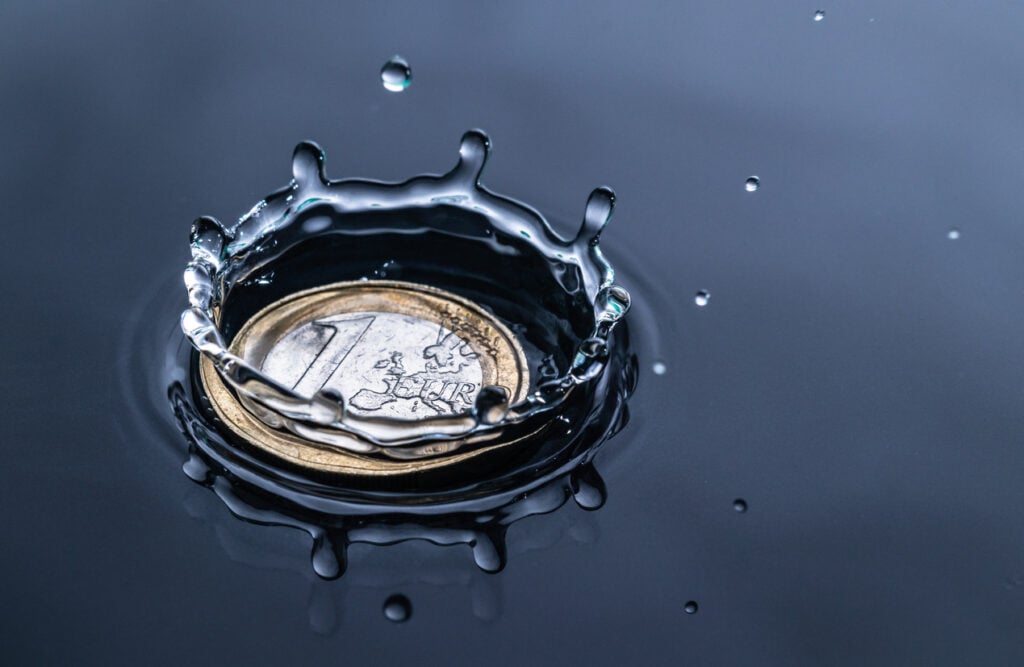Every morning, we reach for that familiar bar or bottle without a second thought. Yet this simple act of cleansing carries consequences that ripple far beyond our bathroom walls. The soap industry, worth billions globally, has quietly become one of the most environmentally problematic sectors in personal care, and most of us have no idea.
The Shocking Truth About Your ‘Clean’ Soap
Walk down any supermarket aisle and you’ll find shelves lined with products promising freshness, luxury, and cleanliness. But beneath those glossy labels lies a troubling reality.
- Sodium lauryl sulfate – a harsh foaming agent – frequently palm oil-derived – that strips away natural skin oils, leaving skin dry and irritated over time.
- Parabens – widely used preservatives shown in studies to interfere with the body’s hormone balance.
- Petroleum-based fragrances – often contain phthalates, synthetic chemicals that persist in the environment and build up in our bodies.
- Synthetic detergents – replace natural oils used in traditional soap-making with lab-made substitutes that can be harsh on sensitive skin.
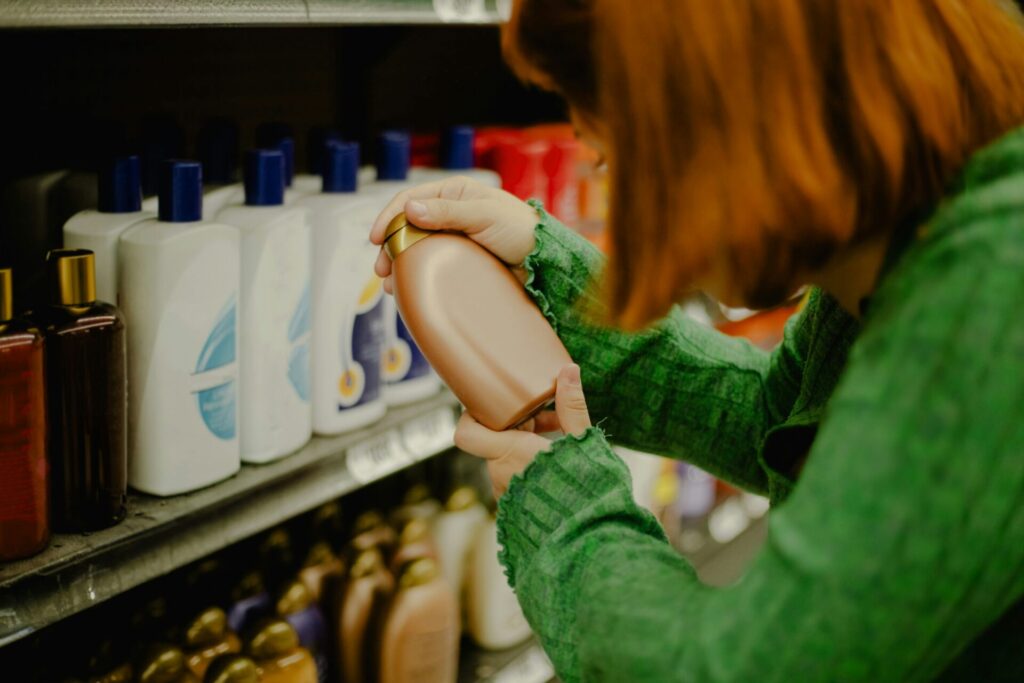
The Plastic Problem
The average adult now reaches for around 12 personal care products a day, from soaps and shampoos to moisturisers and toothpaste. Almost every one comes in single-use plastic packaging. Multiply that daily habit across billions of people worldwide and it’s no surprise that our beauty and hygiene routines are fuelling the 300–400 million tonnes of plastic waste generated globally each year.
And it’s not just packaging piling up on landfills. Much of this plastic eventually breaks down into waterways, clogging rivers and seeping into the sea as microplastics which have now been found everywhere, from Arctic ice to the clouds. The impact of our bathroom shelf choices doesn’t end with plastic waste bins.
The Water Cycle Crisis
Your drain connects to water treatment systems that weren’t designed for modern synthetic chemicals. Many compounds pass straight through, entering rivers and lakes where fish absorb toxins, ocean ecosystems already struggling with pollution, and food chains that circle back to our dinner plates and ultimately, enter our bodies.
In fact, studies show that while some advanced facilities can filter out much of this pollution, conventional wastewater plants often fail to catch pharmaceuticals and personal care products, sometimes removing as little as 20 per cent. That means traces of everything from shampoo to shaving gel are now routinely detected in the environment, and even in drinking water supplies.
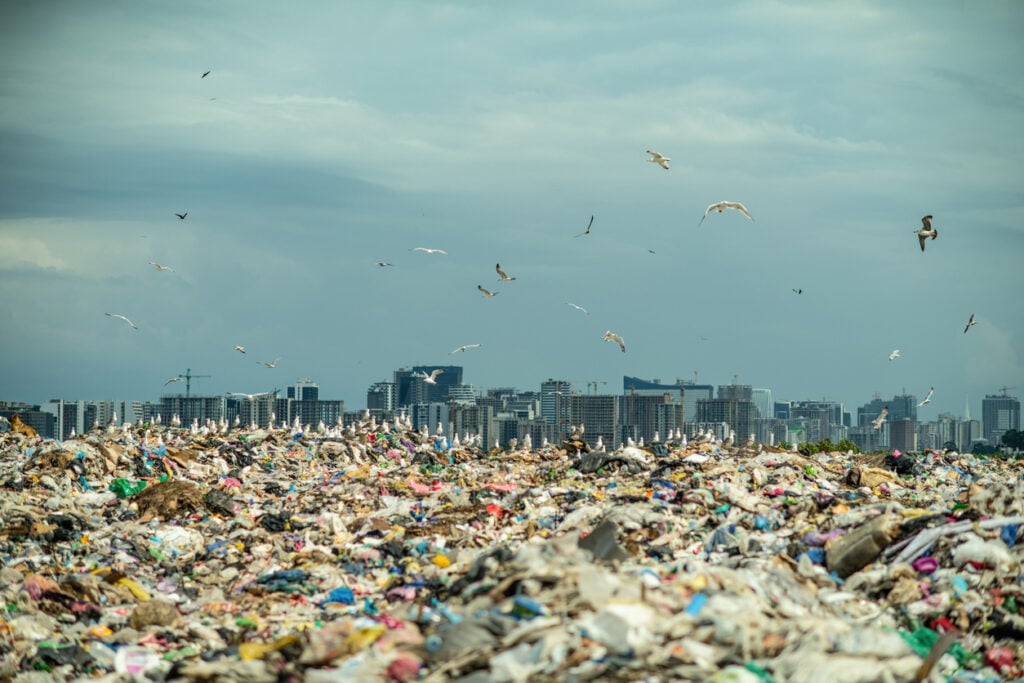
The Animal Testing Reality
Despite growing awareness, major soap brands still test on animals, particularly for products sold in certain international markets. Countless rabbits, mice, and other animals suffer for products we use for mere minutes each day.
The Natural Revolution
Fortunately, a growing movement of ethical soap makers is proving that clean doesn’t have to come at such a cost. These artisans craft their products using time-honoured methods, plant-based ingredients, and sustainable practices that nourish both skin and planet.
Take olive oil soap, for instance. This Mediterranean tradition produces bars that are naturally moisturising, biodegradable, and require minimal processing.
Coconut oils create rich lathers without synthetic surfactants. Shea butter, harvested by women’s cooperatives in West Africa, provides deep hydration while supporting fair trade practices.
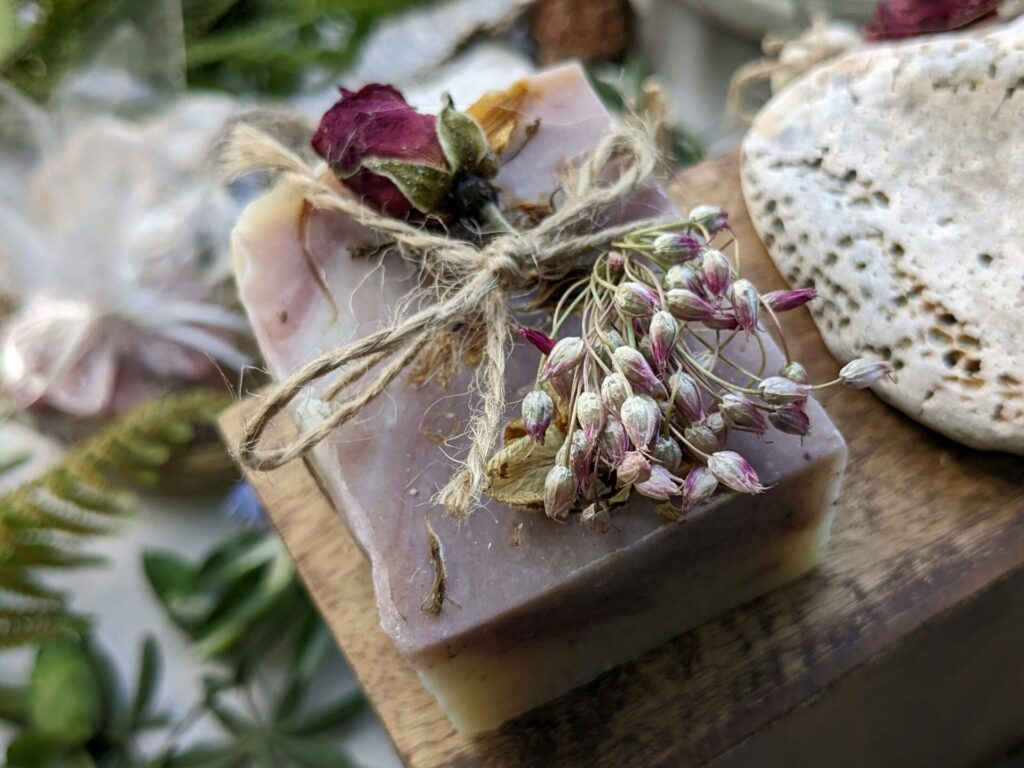
Essential oils replace artificial fragrances, offering genuine aromatherapy benefits. Lavender calms the mind, tea tree provides natural antiseptic properties, and citrus oils energise without overwhelming synthetic intensity. These natural scents don’t just smell better, they connect us to the plants and landscapes they come from.
Identifying Authentic Ethical Soaps
With ‘natural’ and ‘organic’ becoming marketing buzzwords, how do you separate genuine ethical products from greenwashed alternatives? Start with the ingredient list.
Truly natural soaps contain recognisable components: saponified oils, botanical extracts, and essential oils. If you need a chemistry degree to pronounce the ingredients, it’s probably not as natural as claimed. Look for certifications from reputable organisations. The Soil Association, Leaping Bunny, and COSMOS standards provide reliable indicators of ethical production. Vegan Society certification ensures no animal-derived ingredients, while Fairtrade marks guarantee equitable compensation for farmers and producers.
Packaging tells its own story. Ethical soap makers often use minimal, recyclable, or compostable materials. Some offer completely naked bars wrapped only in paper bands. This isn’t just environmental theater, it reflects genuine commitment to reducing waste throughout the production chain.
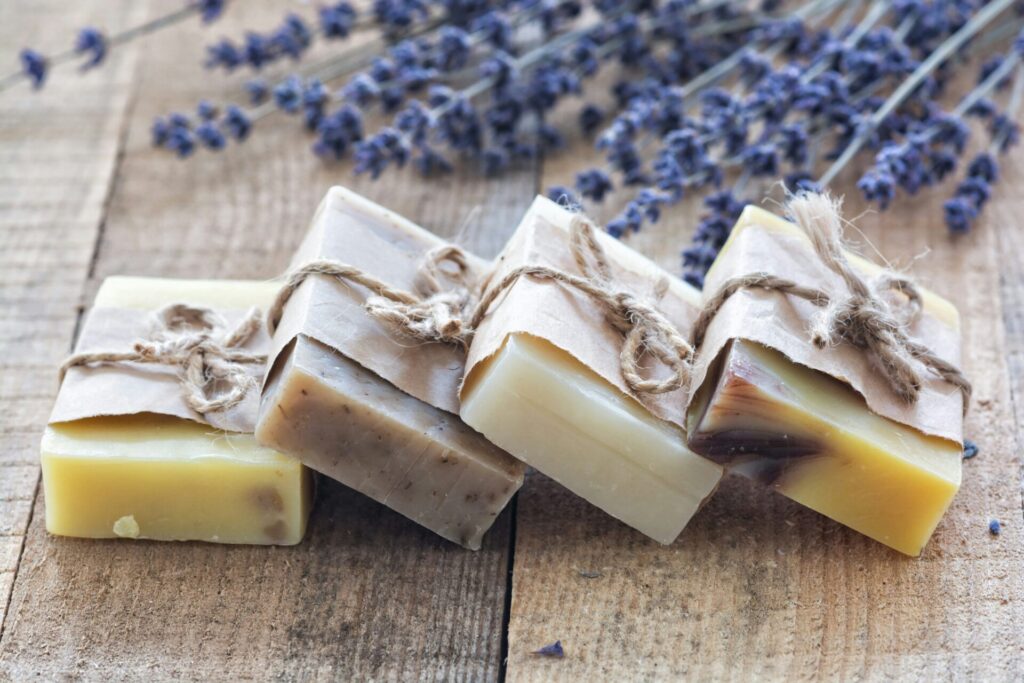
Supporting Ethical Soap Makers
The beauty of choosing ethical soaps lies not just in what you avoid, but in what you support. Small-batch producers like The Soapery demonstrate how traditional craftsmanship can meet modern ethical standards.
These businesses often operate transparently, sharing their sourcing stories and production methods with customers who increasingly want to know where their products come from. By choosing handcrafted soaps, you’re supporting local economies, preserving traditional skills, and encouraging innovation in sustainable manufacturing. Many ethical soap makers source ingredients directly from growers, cutting out exploitative middlemen and ensuring fair prices for farmers.
Making the Switch
Transitioning to ethical soaps doesn’t require a complete bathroom overhaul overnight. Start by replacing products as they run out. Try different natural formulations to find what works best for your skin type and preferences. Many people discover that natural soaps actually perform better than their synthetic counterparts, lasting longer and leaving skin feeling genuinely clean rather than stripped and tight.
Consider the broader implications of your choice. Every ethical soap purchase is a vote for sustainable practices, fair labour conditions, and environmental responsibility.
It’s also an investment in your own health, reducing exposure to potentially harmful chemicals while supporting skin wellness through natural ingredients.
The Bigger Picture
Our soap choices reflect deeper questions about consumption, values, and responsibility. In a world grappling with climate change, pollution, and social inequality, even small daily decisions carry weight. Choosing ethical soaps won’t solve these vast problems alone, but it represents the kind of mindful consumption that collectively drives meaningful change.
As more consumers demand transparency and sustainability, major manufacturers are being forced to reconsider their practices. Some are reformulating products, improving packaging, and adopting more ethical sourcing standards. This shift proves that consumer choices do influence corporate behaviour, even in established industries.
The next time you reach for soap, pause for a moment. Consider the journey that brought it to your hands, its impact on your body and the environment, and the values it represents. In that simple choice lies an opportunity to live more ethically, one wash at a time.
Clean living has never meant so much.

